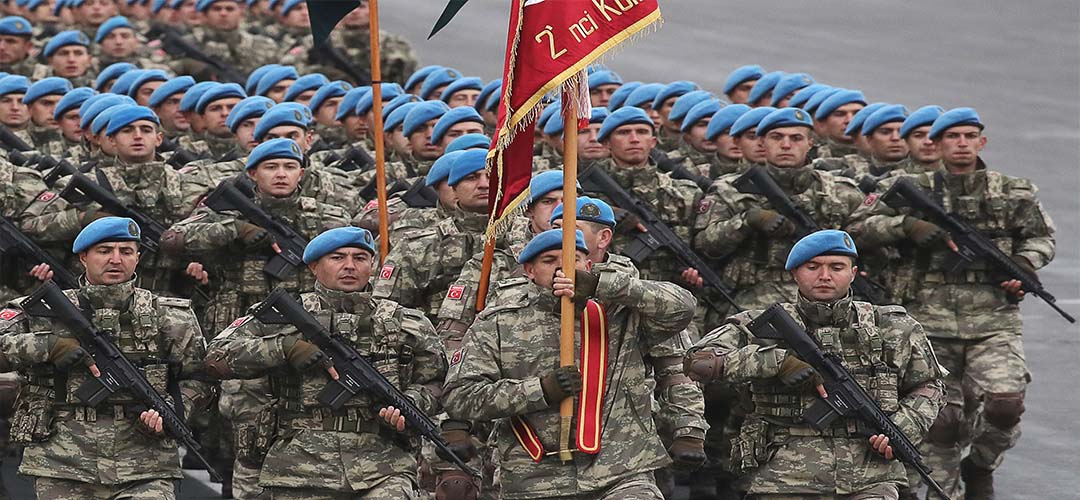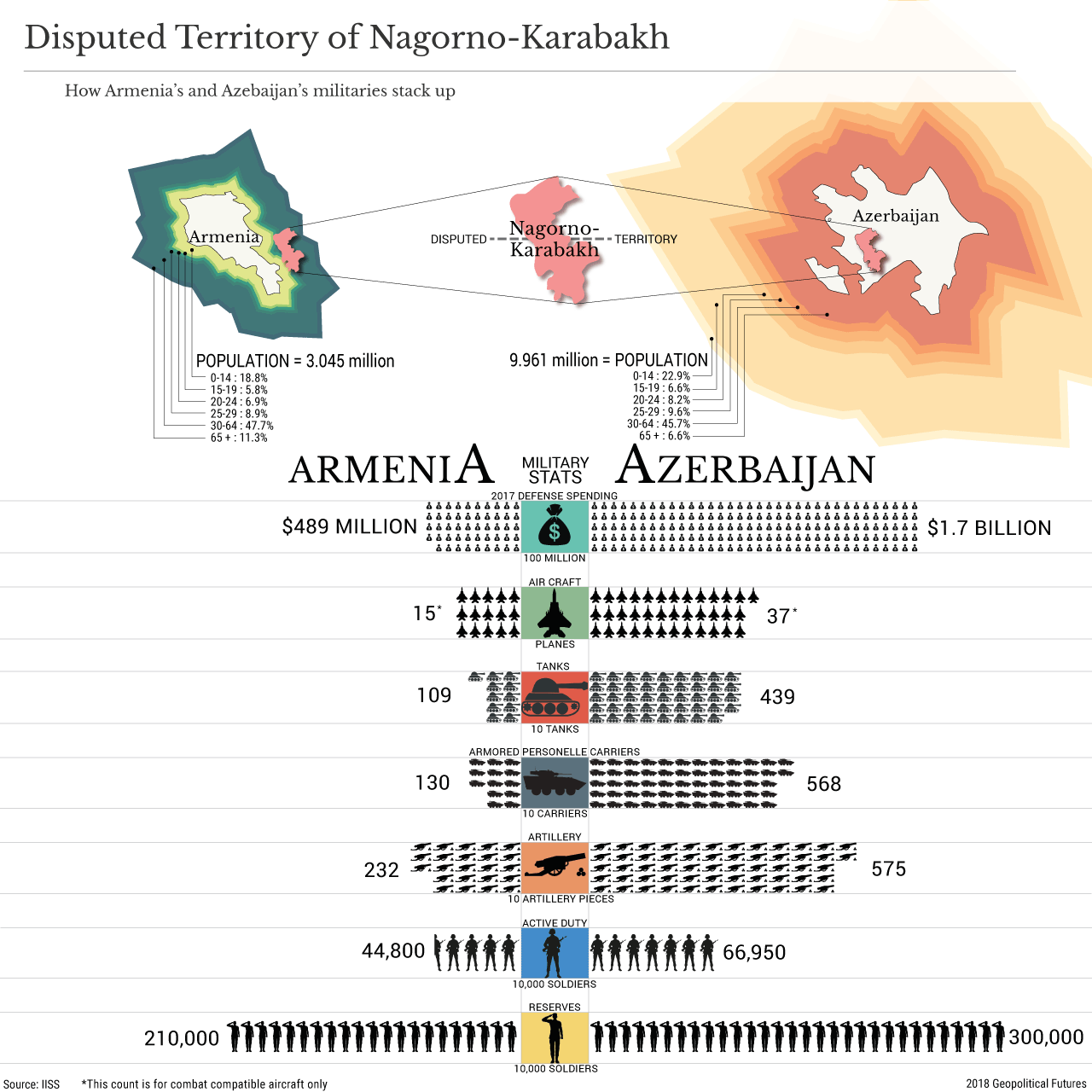A FESTERING WOUND
September 17, 2022 | Expert Insights

While small-scale skirmishes have been taking place along the Armenia- Azerbaijan border since July, last week, it suddenly escalated. As both sides jointly lost over 100 dead, the fighting was the most serious since 2020 and threatened the collapse of the 2020 Moscow-negotiated ceasefire.
There is a real danger that this fresh round of fighting could quickly spiral out of control into a major engagement like the one in 2020. The conflict has the potential to plunge the region into instability where other regional actors like Turkey and Iran may find themselves engaged.
With Moscow trying to stem a Ukrainian counteroffensive in Eastern Ukraine, it had little bandwidth to ensure peace in this troubled region. Armenia and Azerbaijan both have observer status in the Shanghai Cooperation Organization (SCO) summit being held in Samarkand. It was hoped that behind-the-scenes negotiations might be conducted at Samarkand to cool down rising tensions. However, Armenian Prime Minister Nikol Pashinyan cancelled his attendance at the last moment due to “the border situation.”
Background
In southeast Europe, the Caucasus is a hilly area that is crucial from a strategic standpoint. With Biblical traditions about Mount Ararat and Greek mythology about the Titan Prometheus, the mountains and highlands of the Caucasus have captured the imaginations of endless generations. However, the region has also been the focus of critical global events.
Different regional forces, Christian and Muslim, have fought for dominance over the years. When the Soviet Union was established in the 1920s, it included contemporary Armenia and Azerbaijan. Although Nagorno-Karabakh had a sizable Armenian population, Soviet forces handed control of the province to Azerbaijani authorities. Only in the late 1980s, as the Soviet Union started to disintegrate, Nagorno-Karabakh's parliament formally decided to join Armenia.
After Armenia and Azerbaijan proclaimed their independence from Moscow, it resulted in inter-ethnic conflict and a fully-fledged war. Both sides committed ethnic cleansing and atrocities, resulting in thousands of deaths and millions of displaced people. The majority of the war's refugees were Azerbaijanis. Before Russia struck a ceasefire in 1994, Armenian soldiers took over Nagorno-Karabakh and the surrounding regions. While Nagorno-Karabakh continued to be a part of Azerbaijan because of that agreement, it has since been ruled mainly by a separatist, self-declared republic supported by the government of Armenia and led by ethnic Armenians.
Since then, peace negotiations have occurred, mediated by the OSCE Minsk Group, headed by France, Russia, and the United States. However, fighting persisted, and a severe flare-up in 2016 resulted in the deaths of numerous soldiers on both sides. In 2020, the fighting was much more intense and was widely accepted as a victory for Azerbaijan, which was able to recapture vast swathes of territory backed by Turkey-supplied armed drones.

Analysis
While Moscow may consider the Caucasus as its backyard, regional countries like Turkey and Iran have spread their influence as Russian power has waned.
Turkey, a NATO member, was the first country to recognise the independence of Azerbaijan in 1991. Heydar Aliyev, a former president of Azerbaijan, once referred to the two as "one nation with two states." Both have Turkic people and cultures. Additionally, Turkey and Armenia do not have any formal links, and Turkey closed its border with Armenia in 1993 to support Azerbaijan in the conflict over Nagorno-Karabakh. Earlier this year, the Turkish Army was conducting joint training with Azerbaijani military units.
Iran is the only nation that shared borders with all three sides involved in the conflict—Armenia, Azerbaijan, and Artsakh—up until recently. Iran now faces a strategic problem because the war upends the established order. The acceleration of Turkish-Azerbaijani collaboration due to Ankara's unwavering backing for Baku may result in developments that are inimical to Iran's regional objectives.
Nagorno-Karabakh is a difficult puzzle to solve. Internationally it is recognised as Azerbaijani territory. As Russian support for Armenia has declined, Azerbaijan has hardened its stance; it wants nothing short of the departure of all Armenian troops from the region, return of the territory to its flag and return of Azerbaijanis who were forced to flee from Nagorno Karabakh due to the fighting over the years. Armenia, obviously, is unwilling to meekly surrender to all these preconditions in exchange for peace.
Both Russia and Armenia are members of the Collective Security Treaty Organisation (CSTO), the others being Belarus, Kazakhstan, Kyrgyzstan and Tajikistan. So far, Armenia has been unable to convince Russia to respond to its assistance under a NATO Article 5 type response from the CSTO. CSTO agreed to create a working group to study the situation and send a special mission to Azerbaijan to review the situation.
The vacuum created by Moscow’s engagement in Ukraine could prove detrimental to Armenian interests. Since direct military engagement is too dangerous, the Kremlin might use diplomacy and undercover involvement through proxies like the Wagner Group or imported fighters with extensive experience taking on jihadist forces, such as Kurdish militants, to act as peacekeepers in the region. The goal would be to hold on to its status as a trusted mediator acceptable to both sides while negotiating a settlement that curtails Turkish intentions within the region.
Assessment
- With Russia bogged down in Ukraine, Azerbaijan sees an opportunity which is hard to pass. Since 2020, the Azerbaijan military has steadily grown in size and sophistication. Baku would like to use the military route to establish its claim over the disputed territory in preference to diplomacy, which so far has brought little gains for it.
- The greater danger regionally is the growing antagonism between Russia and Turkey over Nagorno Karabakh. For Russia, Turkey's support for Azerbaijan was unparalleled defiance. An increase in tension between the two nations would affect Middle Eastern civil wars and impact Eurasia.








Comments